
Copyright 2017 by Jenna Rose Robbins
Published by Redwood Publishing, LLC
First Edition
All rights reserved. No part of this book may be used or reproduced without the express written permission of the author other than short quotations for articles and reviews.
For information, please contact .
DISCLAIMER: I have tried to recreate events, locales, and conversations from my memories, photos, journal entries, and discussions with others and have related them to the best of my knowledge. In order to maintain anonymity, I have changed the names of places and individuals (except my own name, the names of family members, the names of people who have given me permission, and the names of public figures I write about) and/or other identifying characteristics and details. Any similarity between the fictional names and other characteristics and details that I use in this book and those of any real persons is strictly coincidental.
Printed in the United States of America
Library of Congress Control Number: 2017935109
ISBN Paperback: 978-0-9981760-6-2
ISBN eBook: 978-0-9981760-4-8
Design and illustrations: Lluvia Arras, www.lluviaarras.com
Interior Design: Ghislain Viau
In memory of Uncle Joe


 o many of my friends have supported this work over the years, many of who believed in it more strongly than I did. It was at their urging that I turned a story often told at dinner parties into a full-fledged book, so you have them to either blame or thank.
o many of my friends have supported this work over the years, many of who believed in it more strongly than I did. It was at their urging that I turned a story often told at dinner parties into a full-fledged book, so you have them to either blame or thank.
In my first year of graduate school, my thesis advisor, Madelyn Cain, encouraged me to make my twelve-page essay the basis of my thesis. To this day, she continues to be one of the greatest supporters of my writing. Fellow music aficionado Shannon McClatchey continued to prod me when my creative juices were running on empty, while Marilyn Oliveira and Alysia Gray Painter provided their ample editorial experience to help me see the many holes that Swiss-cheesed my first draft. When it came time to design the book cover, there was only one person I ever considered: Lluvia Arras, whose artistic talents are rivaled only by her mutual love for the boys from Basildon, so I knew she would get the balance of fanaticism and aesthetics just right. And, of course, I probably would not have been the music lover I am today had it not been for my eldest sister, Janys, who is not shy of admitting that she hates to read and so will probably never know the extent of her inspiration.


 hen I decided to be a writer at the ripe old age of four, I never expected that the first book to bear my name on the cover would be a memoir. The spiral notebooks I filled with stories during my childhood could have filled a shopping cart, and not one of them was rooted in reality. Talking ferrets, shipwrecked teenagers, Victorian-esque ghosts, and even some Tolkien-inspired elves lived and breathed within those pages, and Id always assumed one of these tales would be the first to escape the locked hope chest in the attic for a comparatively sunny bookstore shelf. I never would have predicted Id be telling my tale before theirs.
hen I decided to be a writer at the ripe old age of four, I never expected that the first book to bear my name on the cover would be a memoir. The spiral notebooks I filled with stories during my childhood could have filled a shopping cart, and not one of them was rooted in reality. Talking ferrets, shipwrecked teenagers, Victorian-esque ghosts, and even some Tolkien-inspired elves lived and breathed within those pages, and Id always assumed one of these tales would be the first to escape the locked hope chest in the attic for a comparatively sunny bookstore shelf. I never would have predicted Id be telling my tale before theirs.
But then, somewhere around 2005, while I was enrolled in a graduate writing program, I was tasked with writing a short memoir. After I read my paper in class, there was a flurry of questions from fellow classmates who either couldnt quite believe the level of my obsession or who got it and thanked me for putting their own feelings into words. It was the greatest literary acclaim Id received since my second-grade opus Fred the Frisky Ferret.
A week later, I found myself in the office of the program director, who informed me hed nominated my essay for an award. Soon after, my academic adviser had swayed me into making the story my thesis, even though the very reason Id decided to attend graduate school was to complete a separate, non-memoir project that had been brewing in my craw and which Id hoped would lead to a life of globe-hopping.
I also realized Id already spent years telling and retelling the personal melodrama of that one week in Spain, so I might as well put it to paper and never have to tell it again. I also wanted others whod been in my position to know they werent aloneunlike how Id felt at the end of that week. Despite being smack in the middle of a crowd of thousands, Id never felt such utter despairing loneliness. And Id had only myself to blame.
More than twenty years later, as I read my diary from that week, I hardly recognize the person who wrote it. But then a passage will reach out from the pages and resurrect that old tingle in my gut that makes me want to rush back out and do it all over again, consequences be damned.
My companion on this journey doesnt feel quite the same way. She and I still talk occasionally, when our time zones allow and when she deigns to open my email. When I told her last year that I was almost done with the book, there was silence on the other end of the internet. For a moment I thought the line had gone dead, but then I heard a hesitant okay. She went on to say that she had no right to tell me not to publish my book and that she deserved having all her misdeeds recorded forever in ink and pixels. She verbally flogged herself for a good twenty minutes before I got a word in, at which point I told her I didnt hold any grudges and that my teenage self had been just as culpable as hers.
In the end, she asked only one favor of me: not to use her real name. I agreed, and she chose Marta. I chose Paredes as a fictional last name. Most everything else about her character is true, as I remember it, with the majority of the memories coming straight from my diary. I even read her the portion where she tricked me, a vegetarian, into eating pork rinds, which resulted in another vocal round of self-flagellation, despite her not remembering the incident. When I offered to send her a copy of the book so she could ask for edits, she declined. As far as I know, she still hasnt read it and has no intention of ever doing so. If she did, shed probably make herself bear the burden of her churchs paso on her own.
Many of my friends refer to this as my Depeche Mode book, but I wrote this with the hopes that the reader could imagine any band or artist as the object of my obsession and still enjoy the ride as they learned what makes a music fanatic tick. The actual events are not so epic that I needed to share them. Rather, its the absolute power that my obsession had over me that many people just cant fathomuntil Ive described the feelings that coursed through my body like raging teenage hormones. When I explain how the emotions gnawed at me, how they made me do things I knew were wrong, how they never ceased wanting more, more, more then listeners seem to understand. I wrote this book for those readers, the ones who cant comprehend how an otherwise normal, responsible person could allow herself to be consumed by something so trivial as a mass-market music groupand for those who comprehend it all too well.
Next page
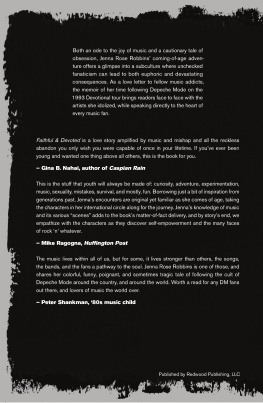

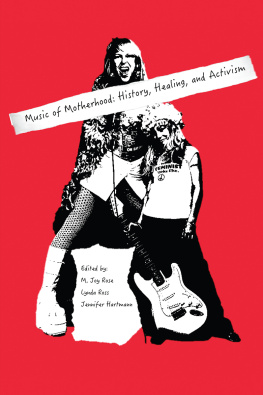

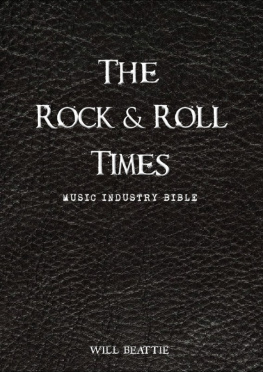
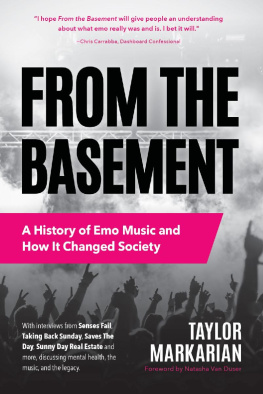
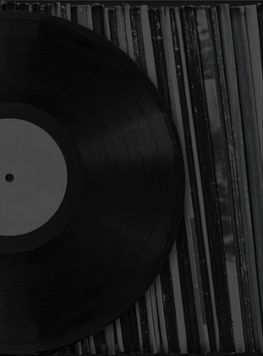
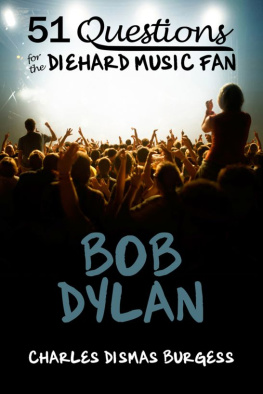
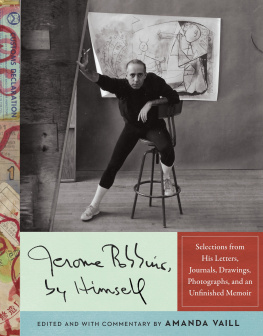
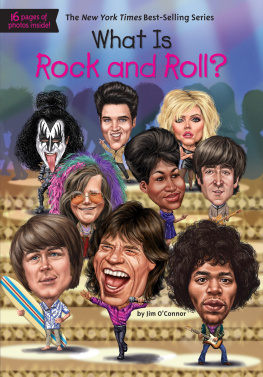
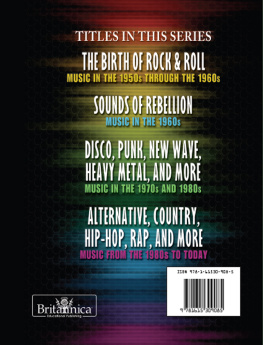



 o many of my friends have supported this work over the years, many of who believed in it more strongly than I did. It was at their urging that I turned a story often told at dinner parties into a full-fledged book, so you have them to either blame or thank.
o many of my friends have supported this work over the years, many of who believed in it more strongly than I did. It was at their urging that I turned a story often told at dinner parties into a full-fledged book, so you have them to either blame or thank.

 hen I decided to be a writer at the ripe old age of four, I never expected that the first book to bear my name on the cover would be a memoir. The spiral notebooks I filled with stories during my childhood could have filled a shopping cart, and not one of them was rooted in reality. Talking ferrets, shipwrecked teenagers, Victorian-esque ghosts, and even some Tolkien-inspired elves lived and breathed within those pages, and Id always assumed one of these tales would be the first to escape the locked hope chest in the attic for a comparatively sunny bookstore shelf. I never would have predicted Id be telling my tale before theirs.
hen I decided to be a writer at the ripe old age of four, I never expected that the first book to bear my name on the cover would be a memoir. The spiral notebooks I filled with stories during my childhood could have filled a shopping cart, and not one of them was rooted in reality. Talking ferrets, shipwrecked teenagers, Victorian-esque ghosts, and even some Tolkien-inspired elves lived and breathed within those pages, and Id always assumed one of these tales would be the first to escape the locked hope chest in the attic for a comparatively sunny bookstore shelf. I never would have predicted Id be telling my tale before theirs.